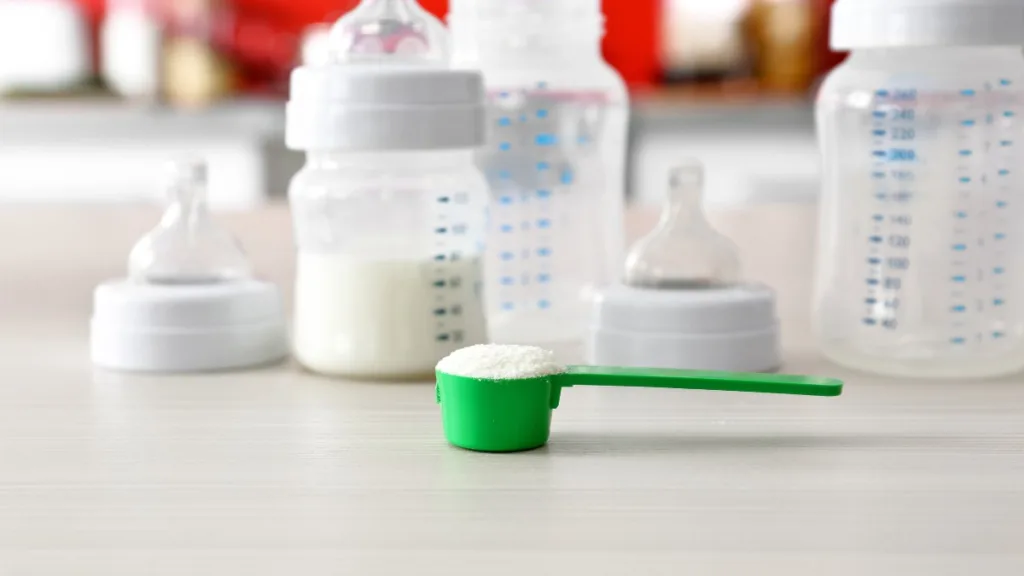Breastfeeding has been the primary way of feeding babies for thousands of years, and for good reason. While formula can be a helpful alternative, breast milk is the most natural, nutritious, and beneficial way to nourish a growing baby. In this blog post, we will delve into seven major reasons why breastfeeding is better than formula.
Perfect Nutrition
Breast milk is a complete source of nutrition for babies. It contains all the necessary nutrients, including proteins, fats, carbohydrates, vitamins, and minerals, in the perfect proportions to meet the growing baby’s needs. Formula, on the other hand, is a synthetic product, and while it is formulated to resemble breast milk, it can never truly replicate its composition.
Immune System Support
Breast milk is loaded with antibodies and other immune-boosting substances that protect the baby from infections and diseases. This is because breast milk contains living cells that can help fight off harmful bacteria and viruses, protecting the baby from illnesses like ear infections, pneumonia, and meningitis. Formula, on the other hand, does not contain these live cells and is not capable of providing the same level of protection.

Digestive Health
Breast milk is easier for a baby’s immature digestive system to digest and absorb, leading to less constipation, diarrhea, and other gastrointestinal issues. Formula, on the other hand, can lead to digestive discomfort, as it is often harder for the baby to digest and can lead to constipation or diarrhea.
Better Brain Development
Breast milk contains high levels of essential fatty acids that are necessary for proper brain development. Studies have shown that breastfed babies have higher IQ scores and better cognitive development than formula-fed babies.

Lower Risk of Chronic Diseases
Breastfeeding has been linked to a lower risk of chronic diseases such as diabetes, asthma, and obesity in later life. The antibodies and other immune-boosting substances found in breast milk are thought to protect against these conditions.
Improved Maternal Health
Breastfeeding is beneficial for mothers as well. It can reduce the risk of breast and ovarian cancer, lower the risk of osteoporosis, and promote postpartum weight loss.
Convenience and Cost
Breastfeeding is convenient and cost-effective. Breast milk is always available, at the right temperature, and in the perfect amount for the baby’s needs. It requires no preparation or equipment, and it is free. Formula, on the other hand, can be costly and requires preparation time and special equipment.

Here are some pros and cons of formula feeding:
Pros:
- Convenience: Formula feeding can be more convenient as it does not require a mother to be present for every feeding. This can be helpful for mothers who need to return to work or have other obligations.
- Flexibility: Formula feeding allows for more flexibility in the baby’s feeding schedule as the baby can be fed by anyone at any time.
- Predictable: Formula feeding can provide a more predictable feeding routine as it is easier to measure the amount of milk the baby is consuming.
- Monitoring Intake: Formula feeding makes it easier to monitor the baby’s intake and ensure they are getting enough milk.
- Availability: Formula is readily available in stores and can be purchased at any time.

Cons:
- Not as Nutritious: Formula does not contain the same level of nutrients as breast milk and may not provide the same level of immune support.
- Expensive: Formula can be expensive and can add up to a significant cost over time.
- Preparation: Formula feeding requires preparation time and special equipment, including bottles, formula, and sterilization equipment.
- Digestive Issues: Formula can lead to digestive discomfort and may cause issues like constipation or diarrhea.
- Lack of Bonding: Formula feeding can result in a lack of bonding between the mother and baby as the act of breastfeeding provides an opportunity for physical closeness and bonding.
It is important to note that while formula feeding is a viable option for some mothers and babies, breast milk remains the preferred and most beneficial way to feed a growing baby.
Conclusion

While breastfeeding is the natural and recommended way to feed a baby, it is not always easy. Many women struggle with issues such as sore nipples, engorgement, or difficulty latching. However, with proper support and guidance from healthcare professionals, most women can successfully breastfeed their babies.
In conclusion, breastfeeding provides many benefits for both babies and mothers. Breast milk provides the perfect nutrition and immune support, leading to better digestive health and brain development. It also reduces the risk of chronic diseases and improves maternal health. Breastfeeding is also convenient and cost-effective, making it the preferred method for many families. While formula can be a helpful alternative, breast milk remains the best choice for the health and well-being of both the baby and the mother.
For more parenting tips and advice, you can read more articles on our website. We always come up with thoroughly detailed articles on various topics. Some of them are listed below for your reference:
- Toy Story: Exploring the Importance of Toys for Children
- 10 Advantages of Reading Aloud to Children
- The Impact of Screen Time on Kids’ Development and 5 tips to Balance it
- 5 Common Benefits of Outdoor Play for Kids and How to Encourage It.
- Breastfeeding Positions: The 4 Best Breastfeeding Positions for your Baby
- The Impact of Screen Time on Kids’ Development and 5 tips to Balance it
- Top 10 Fun Fitness Games for Children
- Are pregnancy tests accurate? Effectiveness of home pregnancy tests
- Breastfeeding and Alcohol: Every negative aspect You Need to Know
FAQs
What are the benefits of breastfeeding over formula feeding?
Breastfeeding provides many benefits that formula cannot match. Breast milk contains all the nutrients and antibodies a baby needs to grow and stay healthy, and it can even help protect against illnesses and infections. Breastfeeding can also help promote bonding between mother and baby, and it may reduce the risk of certain health problems later in life, such as obesity, diabetes, and asthma.
Is there a difference in the nutritional value of breast milk versus formula?
Yes, there is a significant difference in the nutritional value of breast milk versus formula. Breast milk contains a unique blend of proteins, fats, and carbohydrates that are tailored to meet a baby’s needs. It also contains important immune-boosting substances that the formula cannot replicate. While formula can provide adequate nutrition for a baby, it cannot match the complexity and benefits of breast milk.
What are some of the health benefits for mothers who breastfeed?
Breastfeeding can have many health benefits for mothers as well as babies. It can help reduce the risk of breast and ovarian cancer, and it may also lower the risk of osteoporosis and cardiovascular disease. Breastfeeding can also help mothers recover from childbirth more quickly and bond with their babies.
Can a formula be just as good as breast milk?
While formula can provide adequate nutrition for a baby, it cannot match the complexity and benefits of breast milk. Breast milk contains live cells, antibodies, and other substances that can help protect babies from illness and infection. The formula cannot replicate these benefits, and some research suggests that formula-fed babies may have a higher risk of certain health problems, such as ear infections and respiratory infections, compared to breastfed babies.
